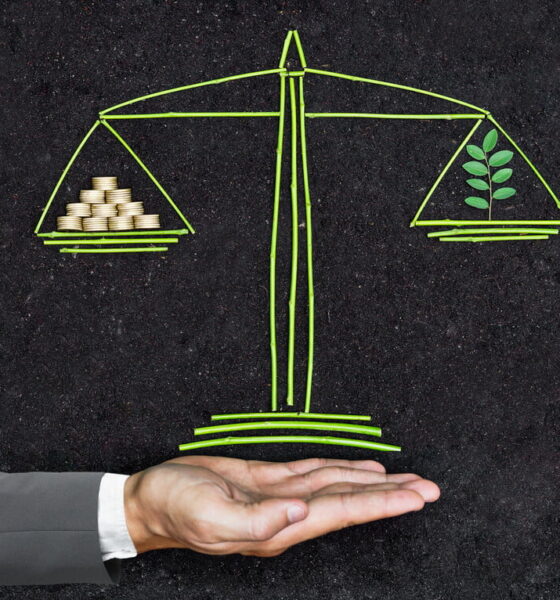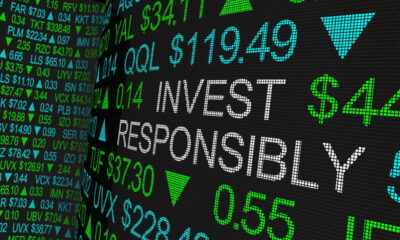

Economy
The Evolving Landscape of Ethical Investing in the Post-Covid Economy
Many people harbor a very binary view of capitalism, which taints their opinion about investing. Certain scandals like the collapse of Enron in 2001 and the fallout from the banking crisis that caused the Great Recession have given people very negative perceptions of corporations in general. Therefore, they have difficulty seeing the potential social benefits of investing.
This has changed in recent months, as more people start exploring the possibilities of socially responsible investing. This could actually be an unexpected silver lining of the recent pandemic. More people are starting to appreciate the positive change that ethical businesses can bring to the table.
You can witness the sudden interest in socially responsible investing by looking at index funds that specialize in these types of financial assets. One of the largest index funds for sustainable and other ethical assets provided a return of 10% as of June. Meanwhile, the S&P 500 was actually down 1% during the same time period. Other sustainable index funds also show that socially responsible stocks and bonds are outperforming the rest of the market.
There are a lot of ways to be a socially responsible investor, which can even include penny stocks. You can see this list of penny stocks to find companies that have green business models.
As interest in sustainable investing continues to grow, investors will need to be more informed. Here are some factors that socially responsible investors will need to take into account as they strive to create portfolios that are more representative of their values.
Investors will need to consider less obvious renewable energy stocks with viable business models
Renewable energy is obviously one of the biggest attractions for socially responsible investors. The market for renewable energy is expected to reach over $1.5 trillion by 2025, which will be one of the largest industries in the world. However, most people don’t know much about renewable energy at all.
A lot of investors and the general public confuse renewable energy with solar power. Obviously, solar power is an example of renewable energy. However, there are a lot of other renewable energy sources to take into consideration as well.
Socially responsible investors will need to recognize that there is a bubble in the renewable energy market. The number of solar energy companies that have been popping up over the last few years is crazy. Unfortunately, many of them have failed to differentiate themselves from the growing sea of competitors that are angling for their market share.
A number of them have also tried to coast off of the growing demand for solar energy, without adequately developing their products. Some solar energy manufacturers have shoddy designs that don’t live up to consumer expectations.
This means that there is a largely untapped market for other types of non-renewable energy. Geothermal and wind power could provide massive energy sources in the foreseeable future.
Of course, these renewable energy companies will need to find ways to differentiate themselves and make sure that their business models are sound. They must have access to geographic profiles and other resources that will keep their operations running for years to come.
Companies that live up to this expectation will likely thrive. Socially responsible investors can stand to get a lot from them.
Fake socially responsible companies need to be carefully weeded out
As with any new market, there are going to be shysters. The market for socially responsible companies is no exception.
A lot of companies have already started to take advantage of the massive interest in eco-friendly products and other ethical business models that they don’t actually adhere to. This is frequently referred to as “greenwashing.”
Companies that misrepresent themselves as socially responsible probably won’t have a very successful future. They face a very strong likelihood of getting fined by the FTC for misrepresenting their brand. They also stand to lose a large portion of their market share after customers realize that they don’t actually live up to their sustainable and ethical pledges.
There may be a greater shift towards companies with a localized distribution strategy
Localization is a major trend in modern business. Many people want to get behind local companies, because they tend to leave a smaller carbon footprint. Part of this is due to the fact that they use local suppliers that don’t have to transport materials long distances.
Although local companies tend to be small businesses, it is possible for larger corporations that are publicly traded to take advantage of localization as well. They might thrive by using regional hubs to connect with customers in various areas, so they don’t have to transport products across state lines.
Sustainable investing will become more popular after the pandemic
The pandemic has changed people’s priorities in numerous ways. More people are concerned about ethical investing and this is likely to increase as the pandemic comes to an end.
































